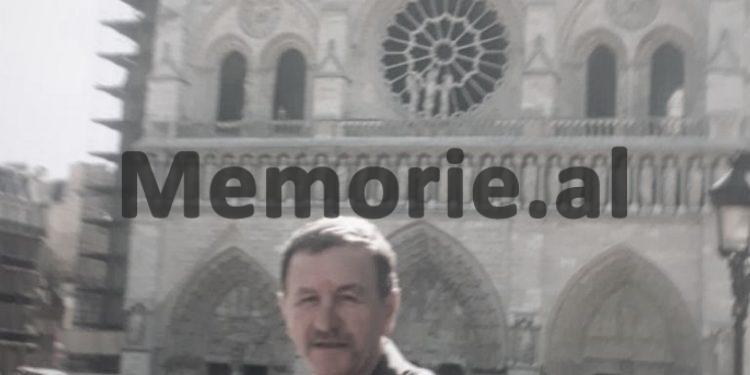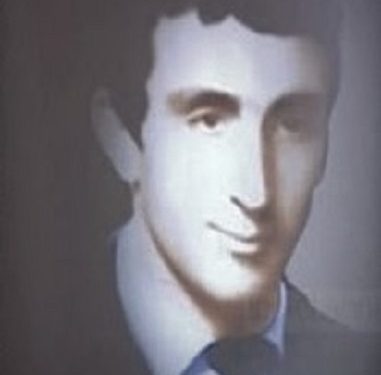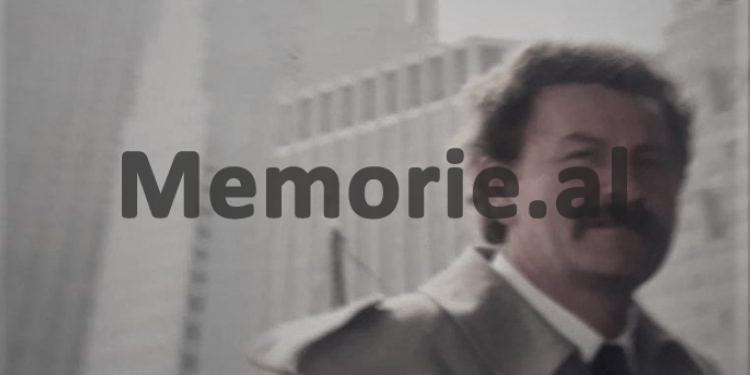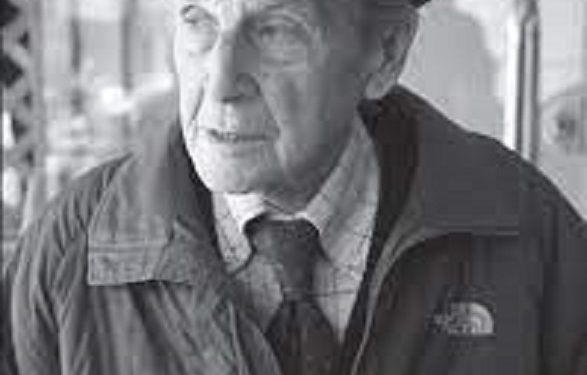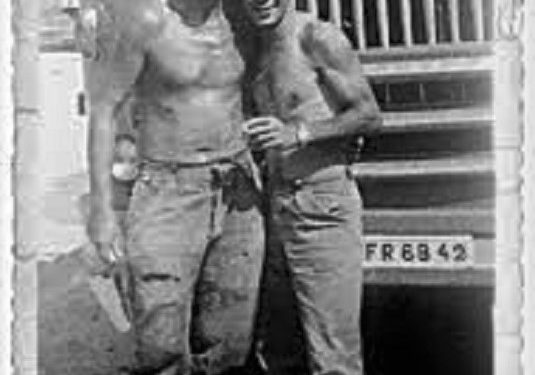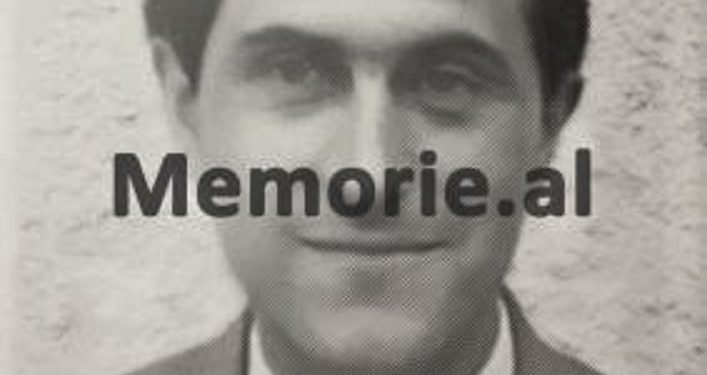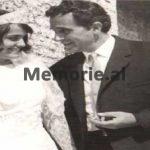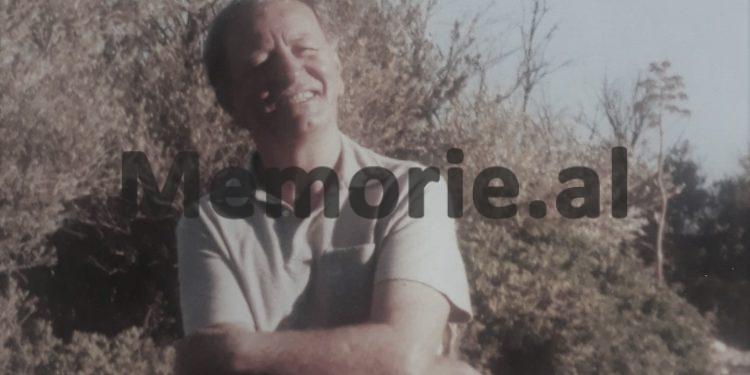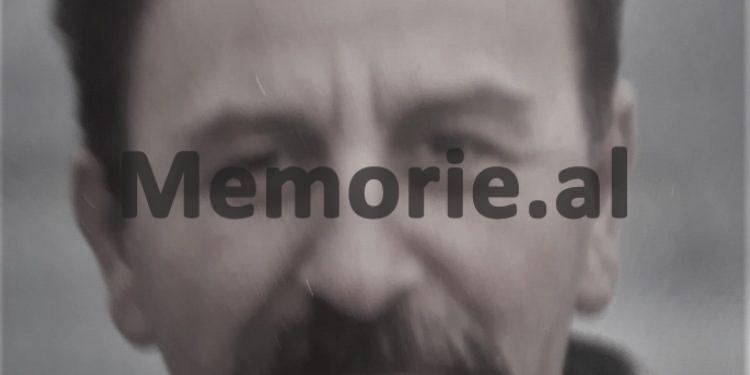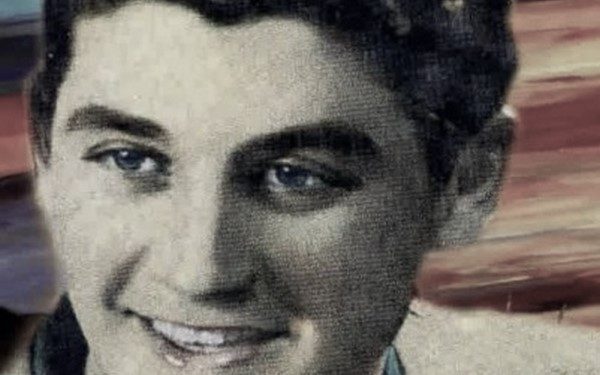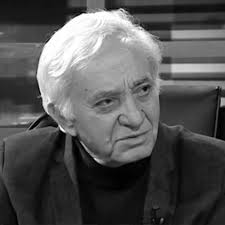By Bashkim Trenova
The fifth part
Memorie.al publishes the memoirs of the well-known journalist, publicist, translator, researcher, writer, playwright and diplomat, Bashkim Trenova, who after graduating from the Faculty of History and Philology of the State University of Tirana, in 1966 was appointed a journalist at Radio- Tirana in its Foreign Directorate, where he worked until 1975, when he was appointed as a journalist and head of the foreign editorial office of the newspaper ‘Zeri i Popullit’, a body of the Central Committee of the ALP. In the years 1984-1990, he served as chairman of the Publishing Branch in the General Directorate of State Archives and after the first free elections in Albania, in March 1991, he was appointed to the newspaper ‘Rilindja Demokratike’, initially as deputy / editor-in-chief and then its editor-in-chief, until 1994, when he was appointed to the Ministry of Foreign Affairs. with the position of Press Director and spokesperson of that ministry. In 1997, Trenova was appointed Ambassador of Albania to the Kingdom of Belgium and to the Grand Duchy of Luxembourg. Unknown memories of Mr. Trenova, starting from the war period, his childhood, college years, professional career as a journalist and researcher at Radio Tirana, the newspaper ‘People’s Voice’ and the Central State Archive, where he served until the fall of the communist regime of Enver Hoxha, a period of time when he in different circumstances met some of the ‘reactionary families’ and their suckers, whom he described with a rare skill, in a memoir published in 2012, entitled’ Enemies of the people ‘and now brings them to the readers of Memorie.al
Continued from the previous issue
“Enemies of the people”
On our way also the house of the famous singer, Rudolf Istanbul
On the street “Architect Sinani” where I lived, there was also the house of Rudolf Istanbul or Dolf, as we called it. Rudolph sang songs of light music. He was quite popular and was listened to with great pleasure by both young and old. To the latter, with his gentle interpretation, Rudolph reminded them of the past of the Italian canons. He himself was quite elegant, beautifully combed, he wore a jacket which he raised his collar in half, thus creating a special and attractive profile.
Rudolfi recorded and broadcast many songs on Radio Tirana. He participated, if I am not mistaken, only in a song festival on Radio-Television. This festival was a kind of competition similar to what was and still is done today in San Remo in Italy or at Eurovision. Its dimensions, of course, were much more modest. This physical exposure of him in front of the public was also fatal for him as a singer. Rudolf was “shamed”. One day without waiting, he was removed from the stage and from the microphone. The songs performed by him were no longer broadcast by Radio Tirana, the only radio in Albania. What did the desolate Dolphin do, who came back on stage silent and almost in tears, only after almost 50 years, when he approached the eighties, after the overthrow of communism ?!
Rudolf was the son of Balto Istanbul. This was his unforgivable “sin.” He should not have admitted to being born to a father like Balto! His father, about 40 years ago, had assassinated a prominent patriot and democrat, Luigj Gurakuqi. He did this because Louis was an opponent of the Monarchy or Monarch, as were later the Communists. This is the communist version of events. Maybe it matches the truth. I have not heard another version so far. Well, for this action of his father, 40 years ago, had to pay now Rudolfi, who was never even involved in politics, who loved girls and song.
For the regime, Dolf’s transition to deafness had to be made to prevent Balto’s son, who himself no longer existed, from being worshiped, especially by the youth. Stuck in a political fanaticism, he hailed the public’s applause for Rudolf Istanbul as a support for the enemy son, though not as a posthumous pleasure for his own father, Balton. In communist logic the enemy had to suffer even after death. This was achieved by punishing his family members, by not letting them raise their heads, by not allowing them to be distinguished as the best students in school, by forbidding them to sing, recite, write and publish … Astrit Sojlin, Pjerin Shllaku, Krenar Preza, Ibrahim Bumçi, all classmates with me.
Shaqir Preza’s family
With Krenar Preza, we have been friends since the age of 3-4. A wall separated the houses where we lived. In fact, my family was sheltered in the house of Shaqir Preza, the son of Krenar’s father’s uncle. Krenar’s father, Osmani, severely affected by a bone disease, was forced to work all his life, loading and unloading trucks transporting boxes of bread to the sales units. Why? The regime kicked Shaqir Preza out of his house on the street, described as an accomplice of the occupiers. Osmani sheltered Shaqir Preza’s family in his house. This human gesture, he would pay for his whole life, not just him. Even his children should not forget that they were the sons of Shaqir Preza’s uncle’s son. Pride was conscious and suffered this.
On June 2, 1961, at the end of our high school lessons, he wrote me the following lines in my notebook: “You (recently) wore that coat to present yourself as a diplomat.” (That’s what I call you). How I wish you were really like that, Union, but I did not say that all our wishes would be fulfilled, and this is not our fault. “But we must not despair, hope keeps people alive.” Pride was right. I, a communist and from a communist family, became a diplomat, albeit for a very short time, after the overthrow of communism. He, from a family with a “biographical stain”, but with a will and intelligence to be envied, became a well-known doctor, lecturer at the Faculty of Medicine and head of Radiology at the Civil Hospital of Tirana, during the dictatorship. We never know what life has in store for us, where happiness or misery has taken us! Accidents and fate are often inseparable.
The tragic fate of engineer Shkëlqim Bumçi
The tragic end of Ibrahim Bumçi is very painful. His brother, Shkëlqim Bumçi, a very talented engineer, was married to Najada, the daughter of Spiro Kolekë, a member of the Politburo of the Labor Party. Splendor divorced Najada. After this divorce, he was charged as a saboteur, arrested and sentenced, it seems to me, to 20 years in prison. I do not know how his fate went. I know that he was very courageous and that he did not bother to oppose the arrogant and arrogant behavior of the Prime Minister, Mehmet Shehu. He was a strong man. It was different Ibrahim, my good high school friend. Ibrahim or Bimi, as we called him, was extremely fragile. After the arrest of his brother, he went into a deep depression and hanged himself.
In our country, the arrest or punishment of a family member was always accompanied by the most extreme measures, to all its members. Abraham, like all of us, was well acquainted with this medieval practice. Did not the talented volleyball player, Asllan Rusi, the dictator himself, forcefully put him in psychiatry because he loved his daughter? Was he not later found dead, allegedly thrown from the window of a high palace, Asllani’s only brother, also later declared by the regime to be mentally ill?
In an old notebook of the gymnasium, at the end of it, Ibrahim Bumçi writes to me: “Our friendship was great and perhaps unforgettable and I believe that the years will not be able to cover with dust and lead to forgetful memories the most beautiful, of our friendship”. They turned Ibrahim into dust. They killed his life in her youth, thus killing our friendship. In a greeting card he sent me to wish me a Happy New Year 1962, to me “the former romantic of class XI b”, as he wrote, Ibrahim humorously concluded: “Since I have no way to hug, that you are too tall , kiss your hand. Bimi”. He was forced to separate even from friends and kiss the ground. For a relatively long time, I did not know anything about his end, but even if I knew, would I dare to go even to throw a fist with my hand and?!
My friend, Rinush Idrizi, was killed in his youth!
Rinush Idrizi, my childhood friend, was also killed in his youth. Rinushi was Rudolf’s closest neighbor. Only a low wall separated his house, from that of Rudolf. A small makeshift door, placed on this wall, served to bring closer the communication between the family, Istanbul and Idrizi. It especially facilitated the meetings between Katerina, Rudolf’s mother, and Ruzhdie, Rinushi’s mother. Katerina was a healthy housewife, dressed in black and coming out to the roadside gate to share her humor with familiar passers-by. Ruzhdia was my teacher and director of the “Congress of Lushnja”, a lady woman, highly respected. Every fall she took care to keep intact on the fruit trees of her garden, a quince or a pomegranate for me.
My friend, Rinushi, has published two monographs on the great Albanian poets, Ndre Mjeda and Migjen. He wrote poetry and critical articles on literature, such as p. sh., “The need for a deeper study of the literature of socialist realism and the periods of its development”, or “The figure of the Party and the communist in three poems”. He had many projects. Thus, for example, from a letter sent to me, on February 20, 1970, I read: “I am thinking of writing a study article about Petron, entitled” Petro Marko and the typical. “What does it look like?”
One day Rinushi comes to my house. He was quite worried. He asked me to save him a bunch of poems written by him. He was afraid of a check that could be made on his apartment by the Security. He himself had been notified of his dismissal as a professor of literature in a gymnasium in Tirana and was expecting other measures in the coming days. They did not delay. Rinushi remained unemployed for some time. One day he told me that he would sell the watch, an East German ‘GUB’, to contribute to the family’s monthly income. He was forbidden to publish poetry, or anything else in the press of the time. He branched out into the deep mountains of Tirana. Rinushi, his poetry and name, had to be forgotten forever. Why? I will talk about Rinushi again, in another chapter.
Now I want to say that he was judged as an enemy in the field of literature and arts, by the Prime Minister of the country, Mehmet Shehu. The Albanian prime minister was known as a rabid believer in communist ideology, as an inquisitor in its defense. His extremist attitudes are known to our entire generation. I remember, p. sh., how he, during a random passing by car in the center of Tirana, noticed a young man who was wearing trousers, slightly wide at the bottom of them and had slightly lengthened his hair. By order of the Prime Minister, the young man was detained, accompanied by his bodyguard, in the building of the Municipality of Tirana nearby. The Prime Minister himself cut the young man’s baggy pants and hair with scissors. “We,” he said solemnly, “will not allow hatred in socialist Albania.”
What was Rinushi’s crime?! He had published an article in the newspaper “Drita”, a body of the League of Writers and Artists of Albania. In this article, Rinushi had expressed an opinion of his, outside the clichés of the time, regarding the treatment or conception of the positive hero, in the literature of socialist realism. This was the name of the literature oriented by the communist ideology. Rinushi was convicted for only one article. His wife, Frida Zeqon, who worked as the secretary of the collegium of the newspaper “Drita”, was also fired from there.
In fact, Rinushi was not without “spots” in his biography. His father, Fetah Idrizi, had been out of work by the communist regime for a long time. He was punished, simply because he had refused to give false testimony in the communist court, against his former director, Niac Naraçi. Rinushi’s aunt’s husband, Beqir Çela, was shot by communism. His grave was never found. Besim Nishani, the husband of one of his grandmother’s sisters, was also convicted by the regime. In this dark context, it was quite comfortable for the regime to place the portrait of the convicted Rinushi.
I kept Rinushi’s poems. These beautiful, felt poems were not political, but they could be interpreted politically by “specialists” in the blind service of the regime. In communist Albania, in fact, there was nothing to escape political observation and at one point, if judged opportune, even political punishment. Absolute security did not exist for anyone or anything, neither for the one standing at the top of the dome, nor for a simple civic or peasant family, nor for the intellectual, nor for an ignoramus who one evening, could have turned a glass more much and on the way home he gave himself the freedom to curse himself no other angle but himself. Thus it happened, p. sh. with one of our neighbors, Enver Murthin.
Imprisonment of Enver Murthi, whose mother worked in the Hotel “Dajti”!
Enver Murthi, lived in front of the house of Rinushi and Rudolf, at the entrance of “Arkitekt Sinani” street. He lived with his mother, Hajrije, and his two sisters and two brothers. They were poor, where it no longer holds. Hajrija worked as a cleaner in Hotel “Dajti”, an imposing building on the main boulevard of the capital, which for several decades was the pride of Albanian architecture. Hotel “Dajti” usually welcomed foreigners, who came to visit and work in Albania. Representatives of the diplomatic corps also met there or drank a glass. Albanians knew that it was not advisable to go to this Hotel, even to drink a coffee.
We knew that everything there was under strict surveillance and that the conversations were recorded by the State Security. Thus, who did not want trouble, avoided the stairs of Hotel “Dajti”. The people of the service, of every level and sphere, were trusted by the regime, including Hajrija. However, that would not help her son, Enver, escape prison.
Enver Murthi, a miser in all his being, a semi-literate, a member of an illiterate and semi-illiterate family, was tried and sentenced to several years in prison for the crime of agitation and propaganda, against popular power. The truth is that Enver, to quell his misery, one evening had rolled a few glasses. Thus, drunk as he was, with his legs not holding him, returning home, he stops in a dark corner of a wall, to urinate. Doing this kind of work, with his tongue thickened, he began to speak to himself and say to himself – “O Enver, I ate your shit, O Enver, you ate my shit”.
Yes, but he was not the only Enver in Albania. He was probably the most loss of the Envers, but in Albania there was also an Enver who was at the head of the state, the government and the Labor Party (Communist.) Enver Murthi was arrested and sentenced to prison because he could not to convince the court that he, with shit honor, had it for himself and not for the great leader of the Party and the people, Comrade Enver Hoxha.
A little further from our alley, at the intersection of Hoxha Tahsim Street and Faik Trenova Street, lived a powerful, authoritarian woman, together with her two sons and her daughter. Her name was Durie Spahivogli. Durija was openly proud of her active anti-fascist past. At least that’s how it seemed to us children. We saw her as the same “guardian”, loyal to the Party in its alley. My mother had also told me about Durien. This strict woman attracted my curiosity from childhood, when her daughter, Dhurata, came as a physical education teacher in the school “Kongresi i Lushnjes” and then in “Shkolla e Kuqe” where I continued my studies. Later, when I started to follow the theatrical life of the capital, Durien, I would also know her as the mother of the very talented actor and director, the head of the acting branch and at the same time the professor of dramatic art, at the High Institute of Arts, Kujtim Spahivogli. With Kujtim begins the tragedy and pain that accompanied Durien until his death.
The internment of Kujtim Spahivogli
Memory, ringing voice, with smiling blue eyes and human, in 1973, would be expelled from the Party as “liberal”. He was removed from the stage by the Higher Institute of Arts. He was removed from the family. The wife was forced to divorce. She divorced to protect their one-year-old daughter, Ani. Kujtim was also expelled from Tirana and sent to the village of Mbrostar in Fier, in southern Albania. There he worked as a laborer, with a pickaxe and a shovel, for years. Punishment destroyed him. Sick, he returns to Tirana, but here he would be left without a job, for a long time. In these conditions he lived only on his mother’s pension and the fruits of the home garden. I remember Durien selling at the door of the house, black figs, placed in a large pan. He had added tobacco. Grays were added. It was no longer Duria who kept talking to passersby. The dictatorship, however, had not yet said the last word. The fruits of Duria’s garden were helping the “enemy”!
On September 2, 1982, the regime razed Duria’s house and destroyed her garden. Duria could not stand this new blow. After a while, she died leaving Kujtim completely alone. Finally, the regime decided to be “generous” and appointed the great artist to work in a Cultural Center in a remote village. The memory, always optimistic, rejoiced immeasurably even though it would have to do several hours a day, going back and forth on foot. Meanwhile his health had taken a downturn. On July 7, 1987, he died completely alone at the age of 55. The dictatorship was not yet fed up with its revenge. She refused to have Kujtim’s lifeless body placed in the city morgue. He was to be buried immediately, without allowing friends and relatives to gather to bid him farewell. Memorie.al
The next issue follows




